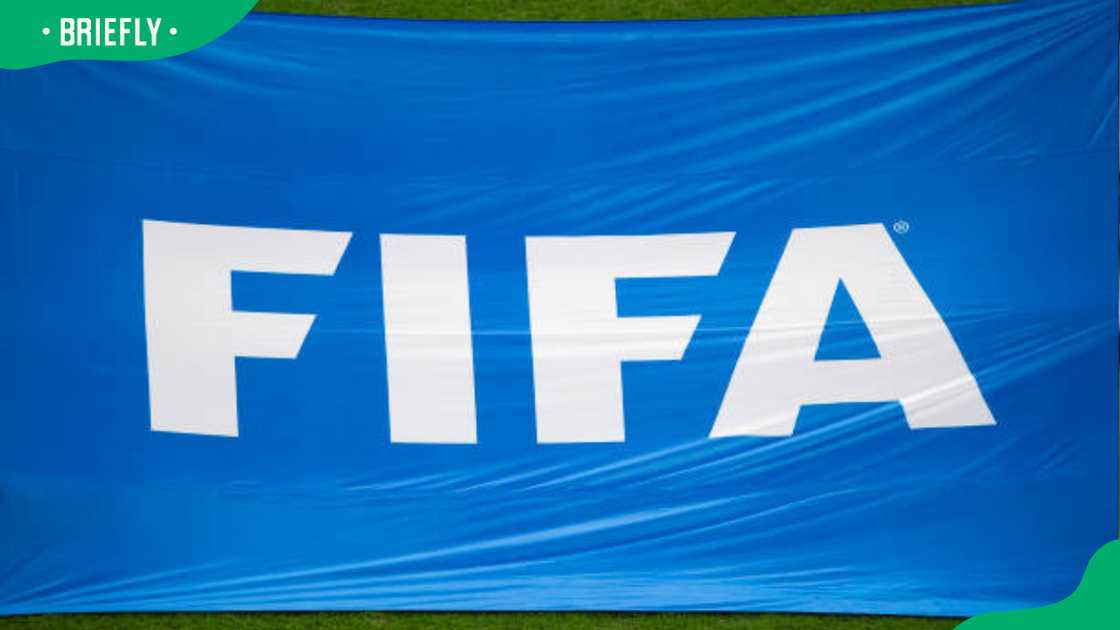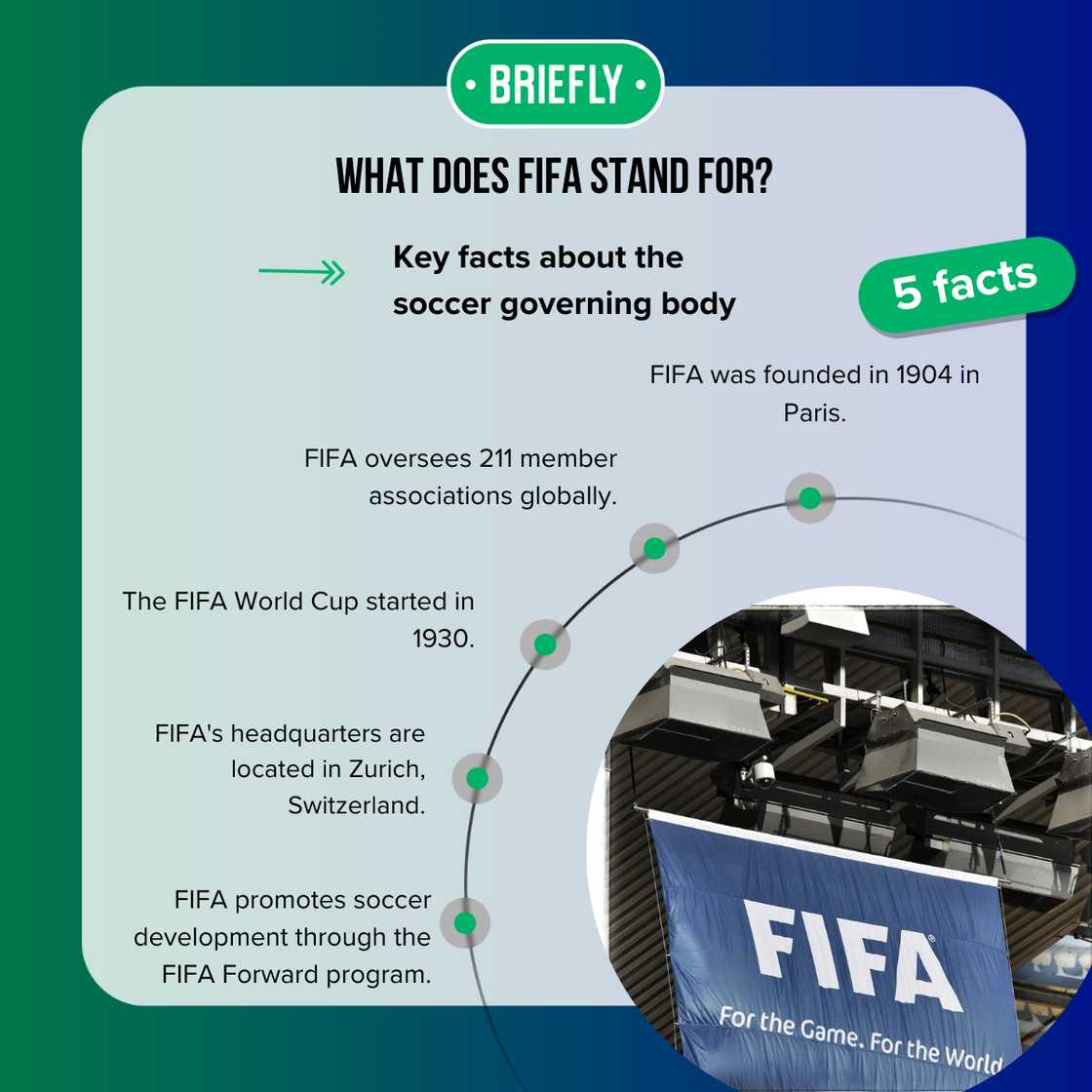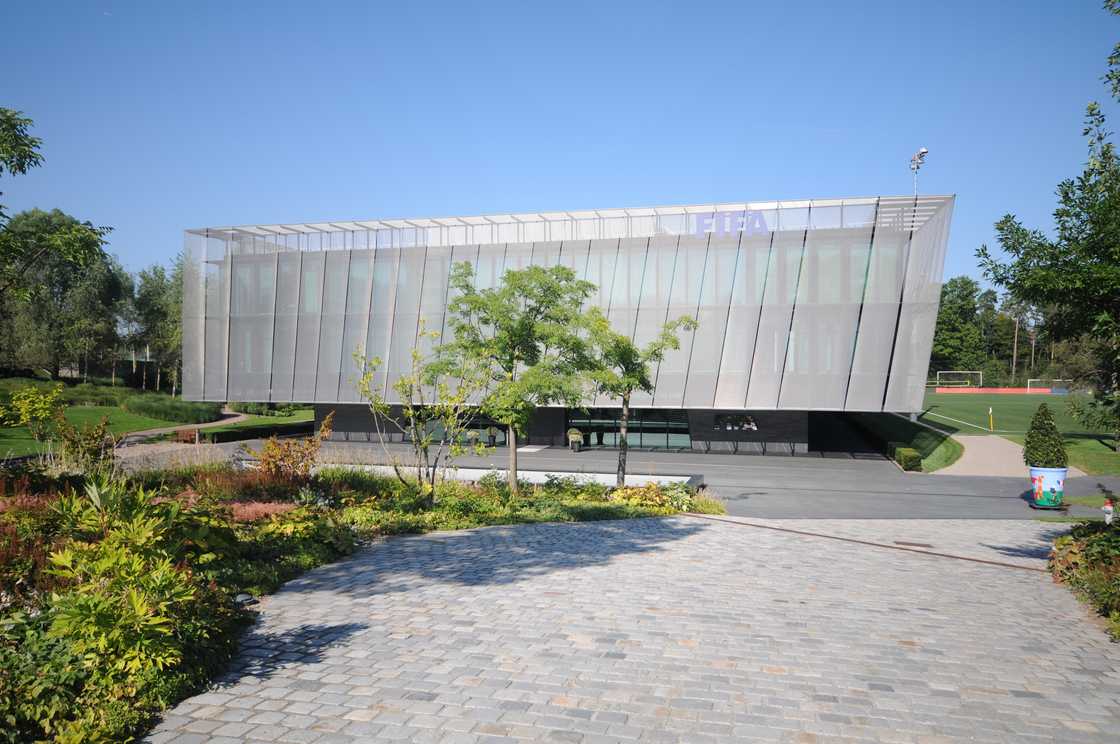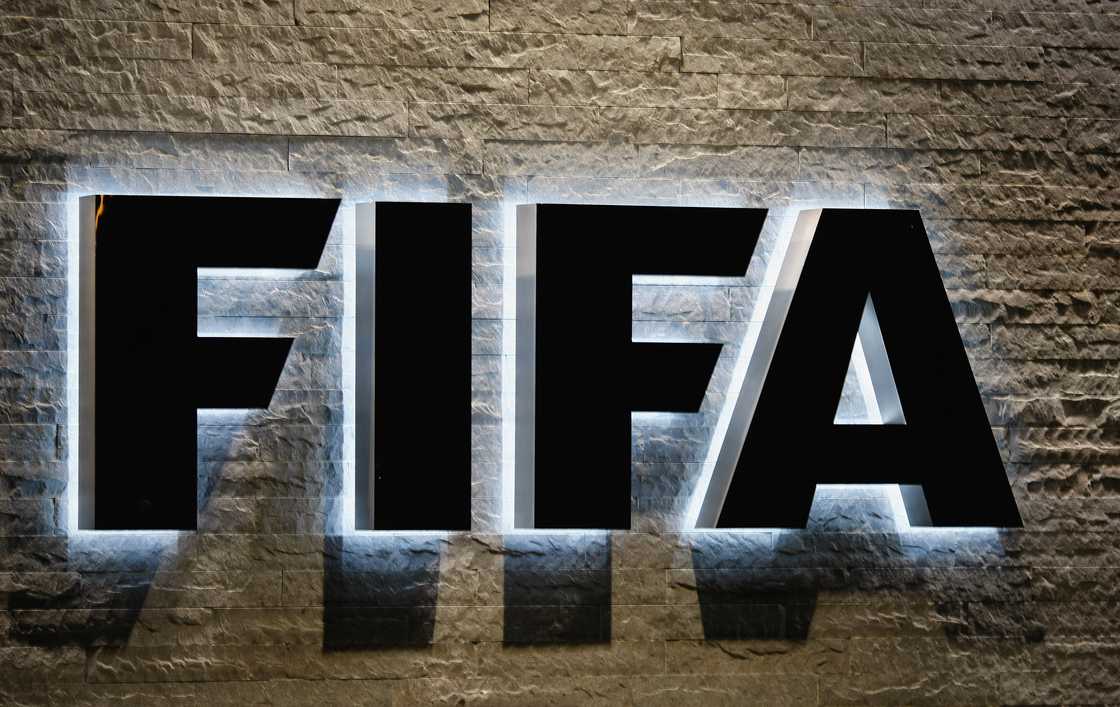What does FIFA stand for? Key facts about the soccer governing body
FIFA, the global governing body of soccer, has been at the heart of the sport for over a century. Renowned for organising iconic tournaments and shaping the rules that influence billions of players and fans worldwide, its name is instantly recognisable. Have you ever wondered what FIFA stands for?

Source: Getty Images
TABLE OF CONTENTS
The federation has been headed by Italy's Gianni Infantino since 2016. Here is an in-depth look at what FIFA stands for, its history, operations, and impact on soccer worldwide.
What is FIFA?
It is the governing organisation for international soccer (or football, as it is known outside North America). It oversees the game's rules, promotes the sport worldwide, and organises international competitions like the World Cup.
What does FIFA stand for?
The acronym stands for Fédération Internationale de Football Association, which translates to "International Federation of Association Football." While its entire name emphasises its European beginnings, FIFA's impact stretches to every part of the world.
- In English: It translates to "International Federation of Association Football."
- In French: The phrase "Fédération Internationale de Football Association" highlights its founding members' use of French as the primary language. French served as a universal diplomatic language during its inception.
History of FIFA
According to FIFA's official website, the federation was founded on May 21, 1904, at Rue Saint-Honoré, Paris, France. Representatives from seven European nations founded it: Belgium, Denmark, France, Germany, the Netherlands, Spain, and Switzerland.

Source: Original
The organisation was formed to monitor international matches and standardise soccer rules, which had expanded in popularity throughout Europe. Soccer executives in Europe believed that growing competition necessitated the establishment of a regulating body.
Under the direction of French journalist Robert Guerin, the seven founding members met in Paris to define the sport's future. FIFA's first president, Guerin, led the organisation from 1904 until 1906. Seven others have served as president, including Jules Rimet, for 33 years (1921-1954).
FIFA achievements
The federation has worked to modernise football so that it is worldwide, accessible, and inclusive in all aspects. Here are some important milestones in their history:
1930
The federation held the inaugural World Cup in Uruguay,. This competition became a pillar of its legacy, featuring the world's top soccer players.
1961
FIFA admitted its 100th member, reflecting its expansion beyond Europe to include nations from Africa, Asia, and the Americas. Guinea became the hundredth member. At the turn of the 21st century, more than 200 countries were members.
1991
The federation launched the inaugural Women's World Cup to promote gender equality in soccer. It took place in Guangzhou, China.

Source: Getty Images
Present day
FIFA has 211 member associations, making it one of the most extensive global sports organisations. Each national association must also belong to one of six regional confederations:
- CAF: Africa
- AFC: Asia and Australia
- UEFA: Europe
- CONCACAF: North & Central America and the Caribbean
- OFC: Oceania
- CONMEBOL: South America
Under the federation's leadership, soccer has grown into the most popular sport on the planet. Sports Illustrated reported that the 2022 World Cup final captivated an estimated 1.5 billion viewers worldwide.
FIFA headquarters
The federation's headquarters are on the Zürichberg, a wooded hill in District 7, Zurich, Switzerland. Switzerland's choice is consistent with the country's reputation for neutrality and stability.

Source: Getty Images
The modern headquarters opened in 2007 and includes offices, meeting rooms, and a soccer pitch. It serves as FIFA's global administrative headquarters and houses officials from various member associations.
FIFA roster
The roster is a list of the teams, players, and officials who compete in FIFA-sanctioned competitions. Each team competing in FIFA competitions must submit a roster that includes the following:
- Players: As stated by Sporting News, typically, a team consists of 26 players for World Cup events.
- Coaches and staff: Teams include technical staff responsible for strategy, training, and medical support.
FIFA's roster includes administrative and operational jobs within its organisation. From executives to grassroots development officers, the organisation utilises a diverse workforce to promote the sport around the globe.
FIFA's mission and role in soccer
FIFA's core mission is encapsulated in its slogan: "For the Game. For the World." As the ultimate administrative authority in soccer, FIFA oversees every aspect of the expensive sport, including:
- Regulating the rules of play
- Managing international player transfers
- Organising global competitions like the FIFA World Cup
- Setting standards for refereeing, coaching, and sports medicine
- Promoting the development of soccer worldwide
Frequently asked questions

Source: Getty Images
FIFA's wide role in defining and promoting soccer has naturally sparked interest in its operations, history, and influence. Here are answers to some often-asked questions concerning soccer's regulatory organisation.
- What is the mission statement of FIFA? The mission is to "Develop the game, touch the world, build a better future."
- Why is FIFA called FIFA? The acronym reflects the organisation's founding in Europe, where French was the diplomatic language of choice.
- What is the FIFA World Cup? It is the world's premier soccer competition, featuring national teams from member countries competing for global supremacy.
- Who is the best FIFA football player? As of November 2024, Kylian Mbappé is recognised as one of the best, with Rodrigo Hernández Cascante and Erling Haaland shortly after, as per the official FIFA ratings website.
What does FIFA stand for? The acronym stands for Fédération Internationale de Football Association, which translates to "International Federation of Association Football." Its journey, from its humble origins in 1904 to its current position as steward of the world's most popular sport, demonstrates its dedication to the game and its worldwide community.
READ ALSO: How often is Copa América? Key facts about the tournament
Briefly published an article about how often the Copa América is played. It is a renowned competition that has existed for over a century and is enjoyed by fans worldwide.
Argentina, Uruguay, and Brazil have long been the competition's powerhouses. Over the decades, the tournament has evolved in terms of structure, participants, and scheduling.
Source: Briefly News






